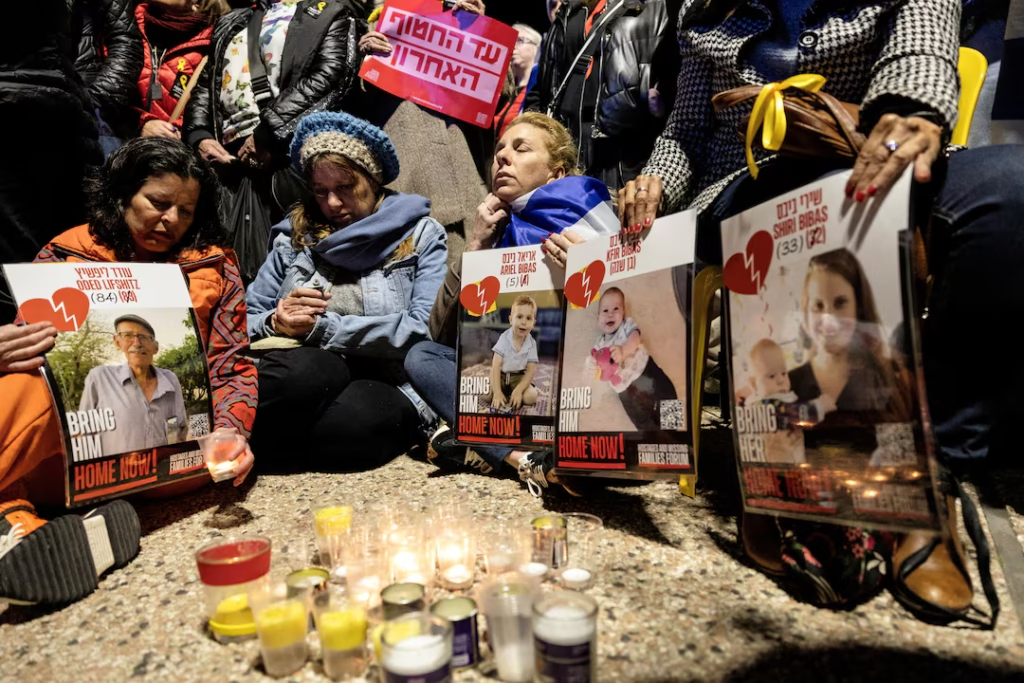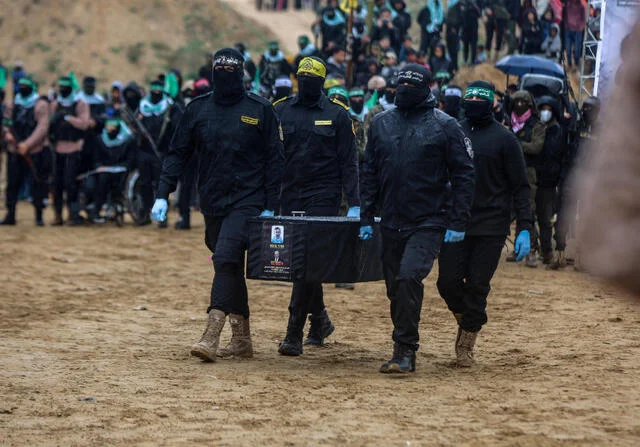Hamas announced Friday it is investigating a possible mistake in identifying human remains handed over to Israel as part of a ceasefire agreement. The announcement comes as Israeli Prime Minister Benjamin Netanyahu threatens retaliation over the failure to return the body of Israeli hostage Shiri Bibas.

Under the terms of the truce, Hamas was set to return the bodies of Bibas and her two sons, Kfir and Ariel, along with the remains of a fourth hostage. The ceasefire, which has temporarily halted hostilities in Gaza, had facilitated the transfer.
Upon receiving the bodies, Israeli forensic specialists confirmed the identities of the Bibas children and the fourth hostage, Oded Lifshitz. However, they determined that the fourth body was that of an unidentified woman, not Shiri Bibas. Bibas was abducted alongside her children and husband, Yarden, during the Hamas-led attack on Israel on October 7, 2023.
Basem Naim, a senior Hamas political bureau member, admitted the possibility of an “unfortunate mistake,” citing the challenges of retrieving bodies amid destruction caused by Israeli airstrikes. He emphasized that thousands of bodies—both Israeli hostages and Palestinians—remain buried under the rubble.
“It is not in our values or interest to withhold bodies or violate agreements,” Naim said in a statement, pledging a full investigation into the Israeli claims.
However, the staged public handover of the bodies on Thursday triggered outrage in Israel, prompting Netanyahu to issue a stern warning.
“We will act decisively to bring Shiri home, along with all our hostages—both living and deceased,” Netanyahu said in a video statement. He accused Hamas of a “cruel and cynical” act by allegedly substituting Bibas’ remains with those of a Gaza woman.
Hamas previously claimed in November 2023 that Bibas and her children were killed in an Israeli airstrike, placing blame on Netanyahu for their deaths. However, Israeli intelligence and forensic reports indicate that the Bibas children were deliberately killed by their captors.
Netanyahu has not disclosed details of a possible Israeli response, but the incident underscores the fragility of the ceasefire deal brokered with U.S., Qatari, and Egyptian mediation.

Despite tensions, six Israeli hostages are set to be released Saturday in exchange for 602 Palestinian prisoners, according to Hamas. Negotiations for a second phase of the ceasefire are expected to begin in the coming days.
“Hamas must uphold the ceasefire terms and return all hostages, living and deceased,” Israeli military spokesperson Nadav Shoshani stated on social media platform X. “They must bring back Shiri Bibas and release the six living hostages as planned.”
Meanwhile, amid rising concerns over ceasefire violations, Netanyahu has ordered intensified Israeli military operations in the occupied West Bank. The decision follows multiple explosions at bus depots near Tel Aviv. While no casualties were reported, the attacks revived memories of suicide bombings that targeted Israeli public transport during the Second Intifada in the early 2000s.
Both sides continue to accuse each other of ceasefire violations. Hamas has threatened to delay further hostage releases, claiming Israel has failed to allow sufficient aid into Gaza—a charge Israel denies.
The uncertainty has left families of the hostages in distress.
“It’s like they are playing a cruel joke on us,” said Ilana Caspi, 75. “We are already grieving, and now this feels like another painful blow.”
The Red Cross also expressed frustration over the handling of the body transfer, criticizing the lack of privacy and dignity in the process.
Despite public outrage over the Shiri Bibas case, there is no indication that Israel will back out of ceasefire negotiations. According to the Israel Hayom newspaper, Israeli officials are considering extending the 42-day ceasefire rather than immediately advancing to the next phase, which would involve complex discussions about ending the war and determining Hamas’ future role in Gaza.
The Hostages and Missing Families Forum, a key group advocating for those still held in Gaza, urged both sides to ensure the safe return of all remaining captives.
“Save them from this nightmare,” the group said in a statement.
Reuters



